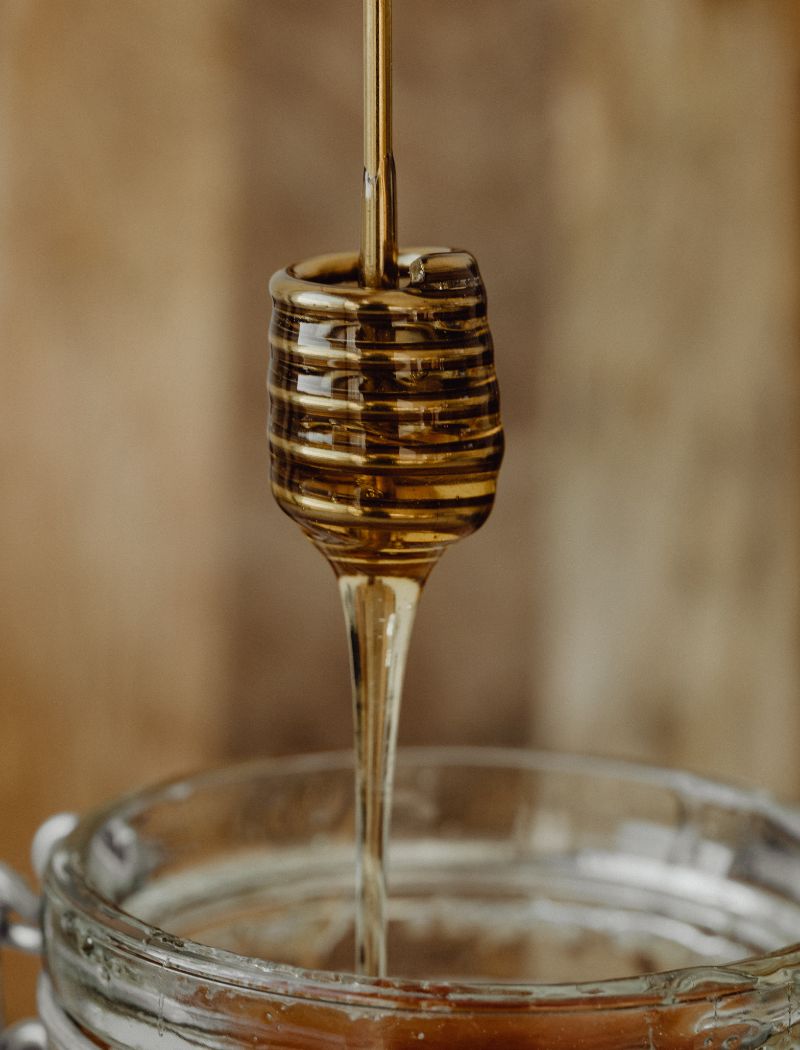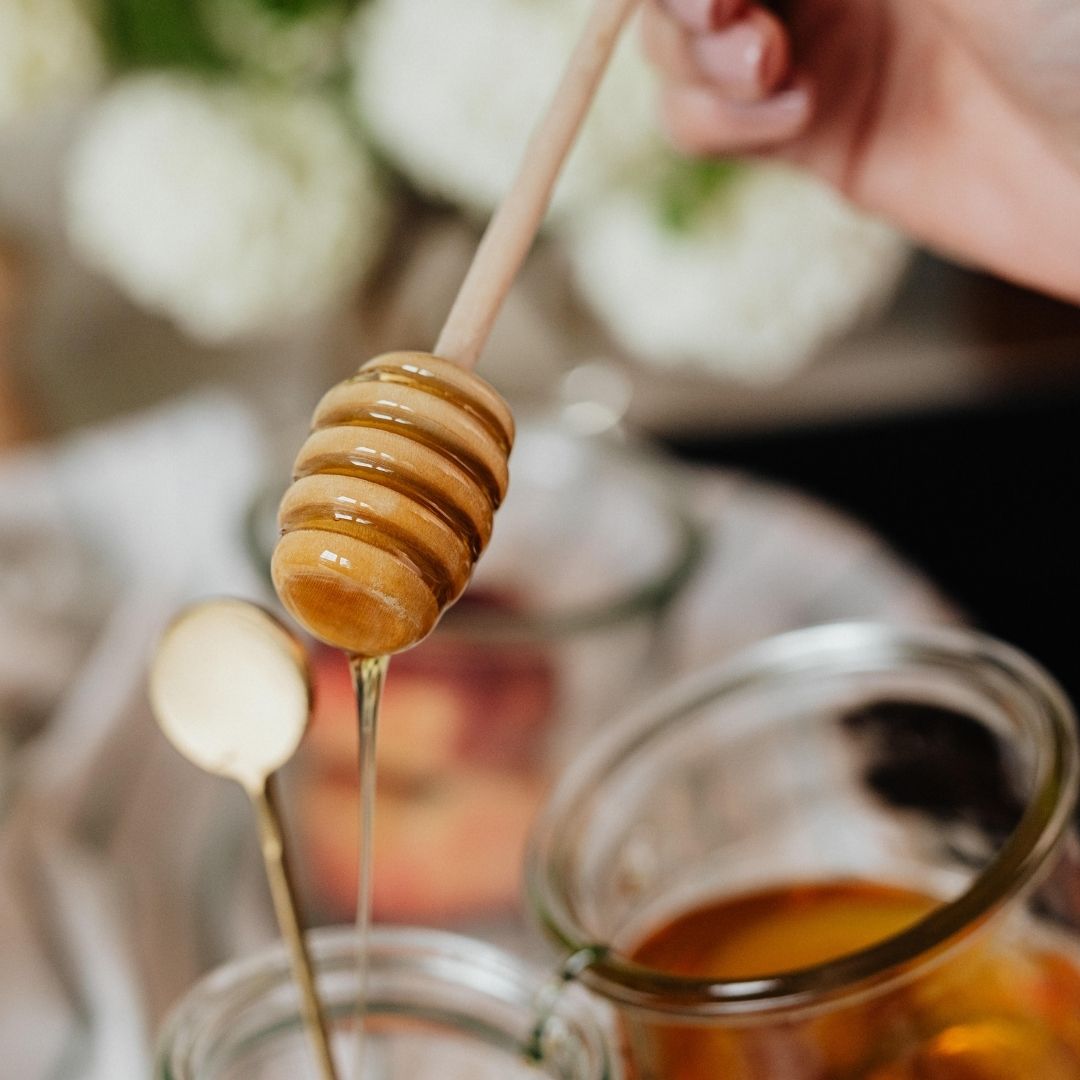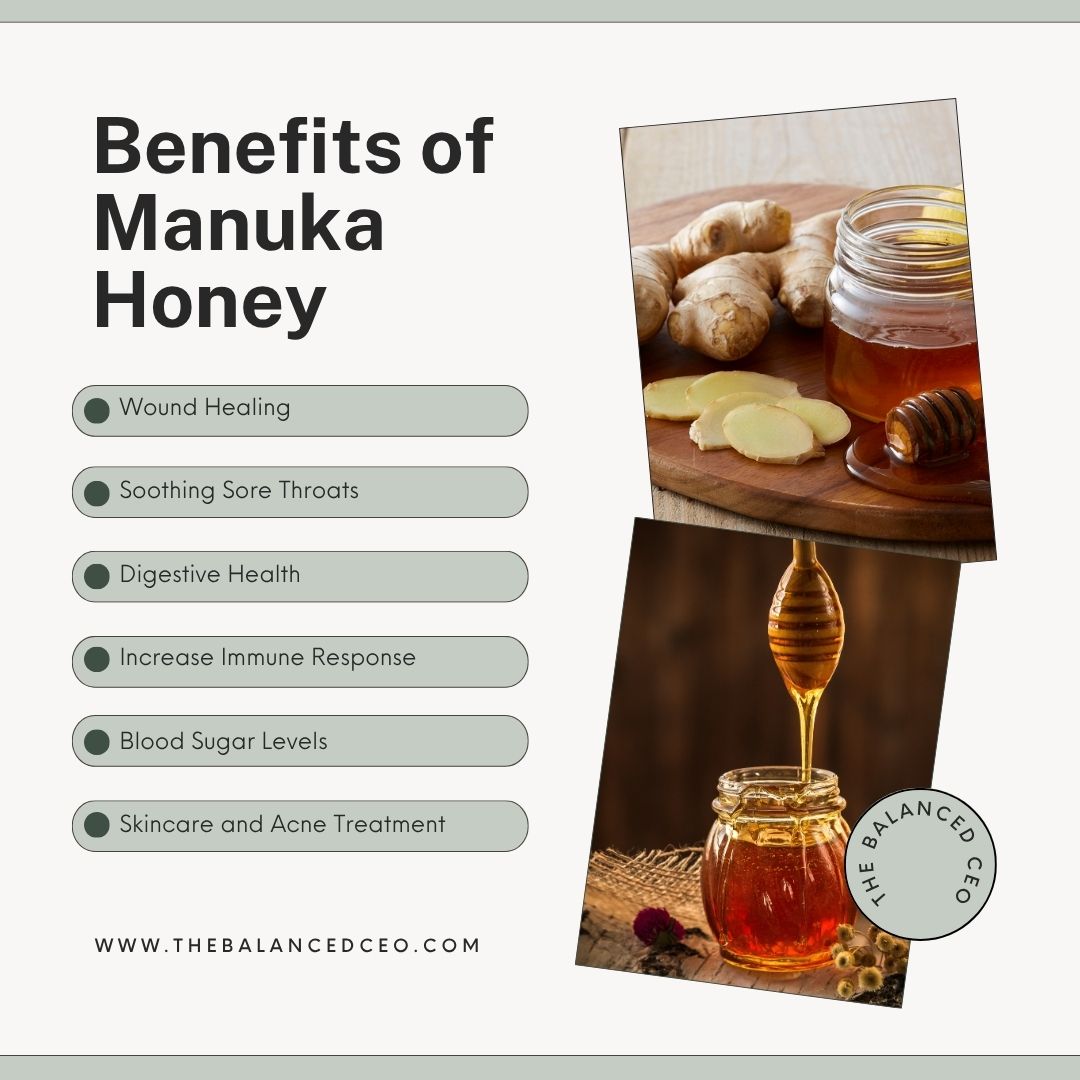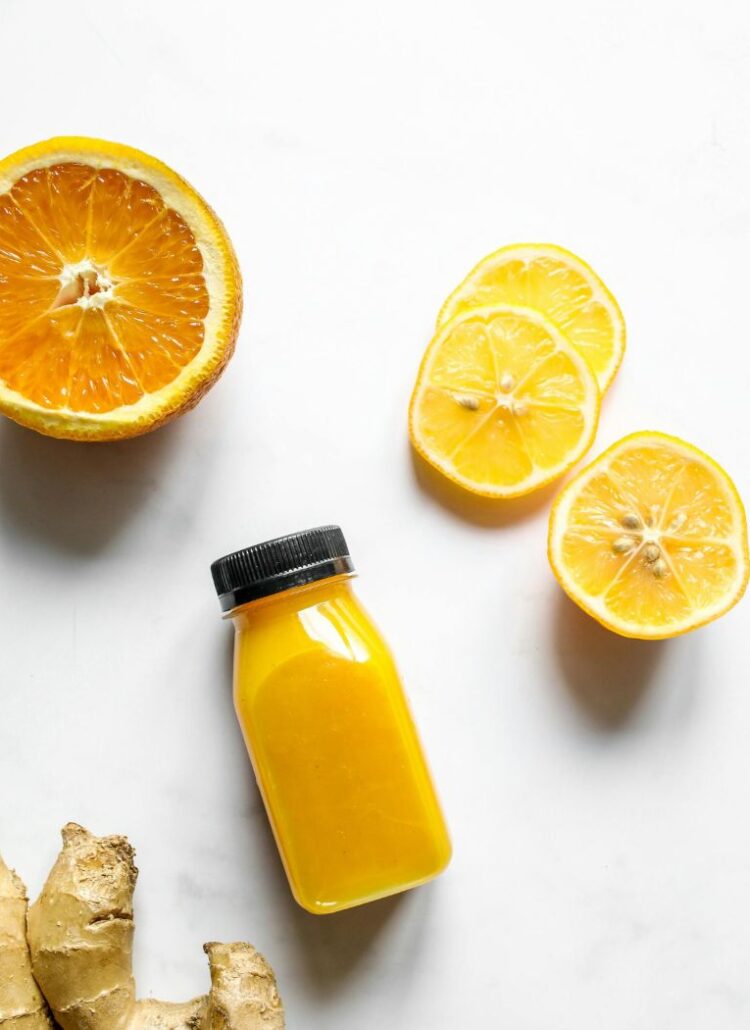This post may contain affiliate links, which means I’ll receive a commission if you purchase through my links, at no extra cost to you. Please read full disclosure for more information.

Honey has long been cherished not just as a natural sweetener, but as a widely trusted remedy in traditional medicine across cultures.
From clinical uses to your grandmother’s kitchen, its therapeutic benefits have earned its place as a household staple for enhancing health and soothing ailments alike.
While there are many types of honey available—such as acacia, wildflower, and clover—each variety has its own flavor, color, and composition. The source of nectar and the method of harvesting honey greatly influence its properties, and not all varieties offer the same benefits.
Recently, Manuka honey has gained attention in the wellness and beauty industry for its potent healing qualities. As more people turn to natural alternatives for personal care and wellness, its popularity continues to grow.
Although natural remedies like Manuka honey bring balance to our well-being, there’s still much to understand about their full potential. Here you can discover the healing benefits of manuka honey which support holistic health with inner nourishment.

Understanding the Healing Benefits of Manuka Honey and Its Role in Modern Holistic Health
You may wonder what makes Manuka honey so different from your typical grocery store-bought honey, and why it’s becoming the hero ingredient in many skincare products and immune-boosting supplements.
This blog post will unpack the science that explains its powerful properties and its health-enhancing potential.
What Is Manuka Honey?
Manuka honey is a rare variety of honey produced by bees that pollinate the flower of the manuka bush (Leptospermum scoparium), a wild shrub native to Australia and New Zealand. These regions are the only places where authentic Manuka honey is sourced, giving it an exotic and exclusive factor.
Unlike regular honey, which gets its antibacterial strength mainly from hydrogen peroxide, manuka honey contains a powerful composition called methylglyoxal (MGO). This compound gives it stronger, more stable antibacterial properties, making it a potent natural healer.
Is Manuka Honey Good For You?
The answer is a big, sweet yes. Manuka honey isn’t just a fancy sweetener—it’s believed to be a powerhouse of natural wellness.
One of the key reasons why this honey is a go-to remedy for both internal and external healing is its high concentration of methylglyoxal (MGO) combined with hydrogen peroxide and other natural enzymes that further increase its antibacterial and healing effectiveness.
But what truly distinguishes it more is its Unique Manuka Factor (UMF)—a quality scale used to measure the strength and purity of the honey based on its MGO level and other active compounds. The higher the UMF rating, the stronger the antibacterial effects.
This system also guarantees you receive authentic, potent Manuka honey known for its therapeutic benefits.

What Are The Benefits Of Manuka Honey?
If you’re still weighing its value and debating whether to include it in your daily regimen, let’s dig deeper into why you should appreciate its sweet benefits.
1. Wound Healing
The high MGO content and bacterial resistance of this honey help protect wounds from infection and encourage faster healing when applied to cuts or burns by forming a moist barrier that aids in tissue regeneration and easing inflamed skin.
2. Soothing Sore Throats
Manuka honey is widely used for relieving sore throat. When consumed, its thick, smooth texture coats the throat, easing irritation and dryness, providing instant relief, while fighting off bacteria that may cause infections.
3. Digestive Health
Anti-inflammatory properties and natural enzymes present in this honey help fight harmful gut bacteria—the main contributors to gut issues like bloating, indigestion, and stomach ulcers. Taking it daily may also calm irritable bowel syndrome (IBS) and maintain digestive health.
4. Increase Immune Response
Manuka honey can boost the body’s defense system by increasing the release of certain cytokines—a signaling protein crucial for immune system communication that guides white blood cells to locate and destroy infection or damaged tissues.
Its natural antioxidant also combats inflammation and oxidative stress which further helps in maintaining a stronger immune system.
5. Blood Sugar Levels
While it’s still a form of sugar, it’s believed that taking Manuka honey in controlled portions may better manage blood sugar levels relative to refined sugar. Mainly, because of its lower glycemic index (GI) and nutrient-dense profile which delays the absorption of sugar into the bloodstream.
6. Skincare and Acne Treatment
Due to its strong antibacterial strength and natural humectant qualities, it may help kill acne-causing bacteria, reduce redness, and heal the skin without drying—promoting clearer, healthier skin.

How to Use Manuka Honey?
Now that you’re familiar with the many benefits of Manuka, let’s dive into ways to include it in your daily routine.
1. Take It As a Daily Supplement
You can start your day by taking a spoonful of honey on an empty stomach to support your immune system.
2. Add It to Warm Beverages
Manuka honey is a perfect match for warm lemon or herbal teas, especially when you have a sore throat and want to increase your drink’s healing properties.
For a delicious wellness drink, try this recipe: How to Make Matcha Latte at Home.
3. Natural Skincare
Tie back your hair and apply the honey directly on your face as a 15-minute mask to treat dry skin or dab a little on acne.
4. DIY Remedies
You can include it in homemade cough syrup, lip scrub, or even a hair mask or any remedy you whip up.
5. Topical Treatments
To help heal minor wounds, gently clean the area, apply a thin layer of medical-grade Manuka honey, and then cover it with a clean bandage to create a protective barrier to speed up the healing process.
6. Sweetener Substitute
Add this honey to your tea, yogurt, or baking. You can also drizzle it over toast, smoothies, or salad dressings. Just avoid heating the honey too much, as high temperatures can reduce its healing compounds.
Important Note: Manuka honey is generally a safe and healthier choice compared to refined sweeteners. However, people with diabetes, allergic to honey or bees, and parents considering giving it to children under 12 months should consult a doctor before use.
Beyond the Buzz of Manuka
The buzz around the Manuka honey is grounded in real benefits—with its unique composition rich in methylglyoxal (MGO) and antibacterial properties, backed by science and centuries of traditional use, this honey with its value truly stands out amongst other types of honey available.
But keep in mind every honey is unique. While buying, look for authentic Manuka from Australia and New Zealand with a verified UMF rating to ensure you’re getting the genuine product.

Michelle Gagliani
Owner & Founder
Michelle is the Founder of The Balanced CEO and a Holistic Nutritionist + Health Coach. She was born and raised in St.Thomas, U.S.V.I., and is currently living in Austin, TX. When she’s not running this blog and online business, she is cozied up at home watching TV, taking long walks in nature, or trying out new healthy recipes.





Leave a Reply